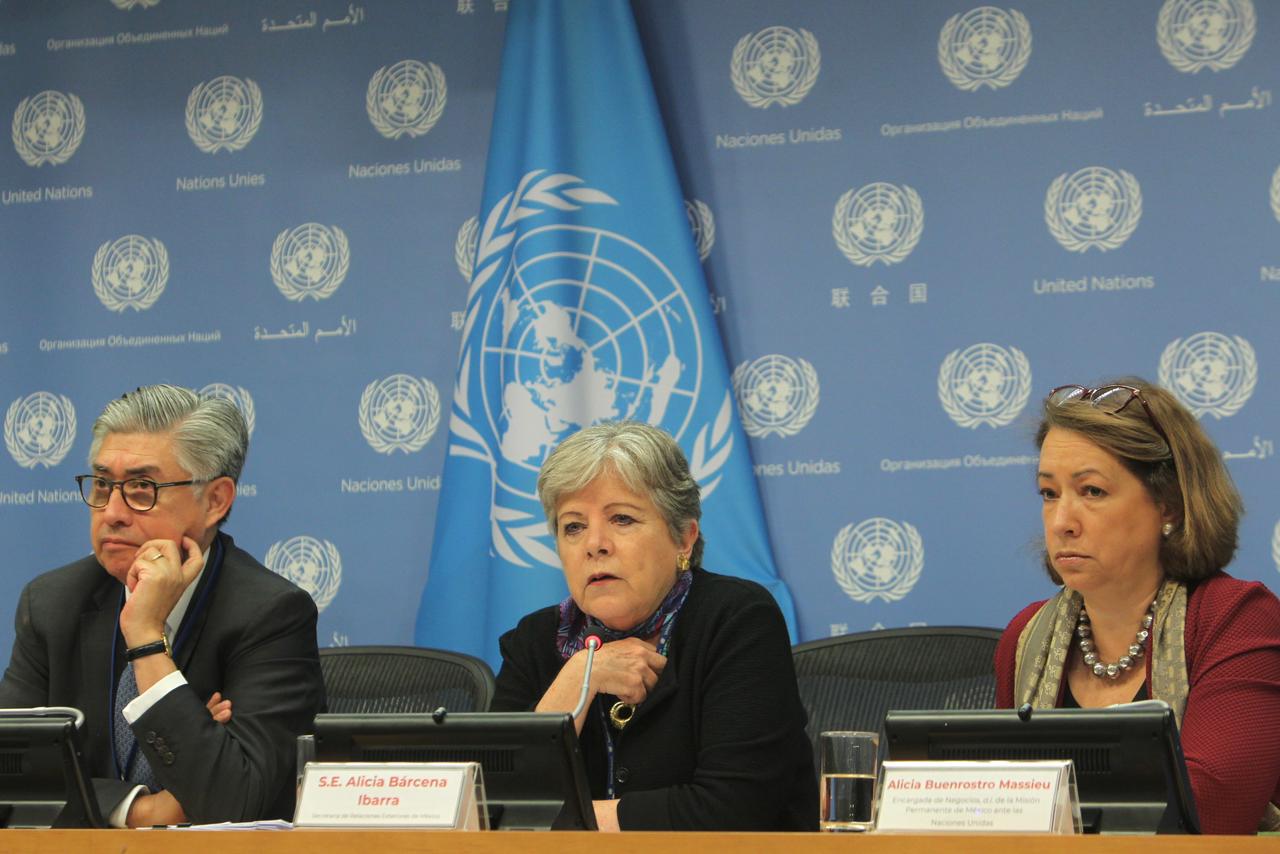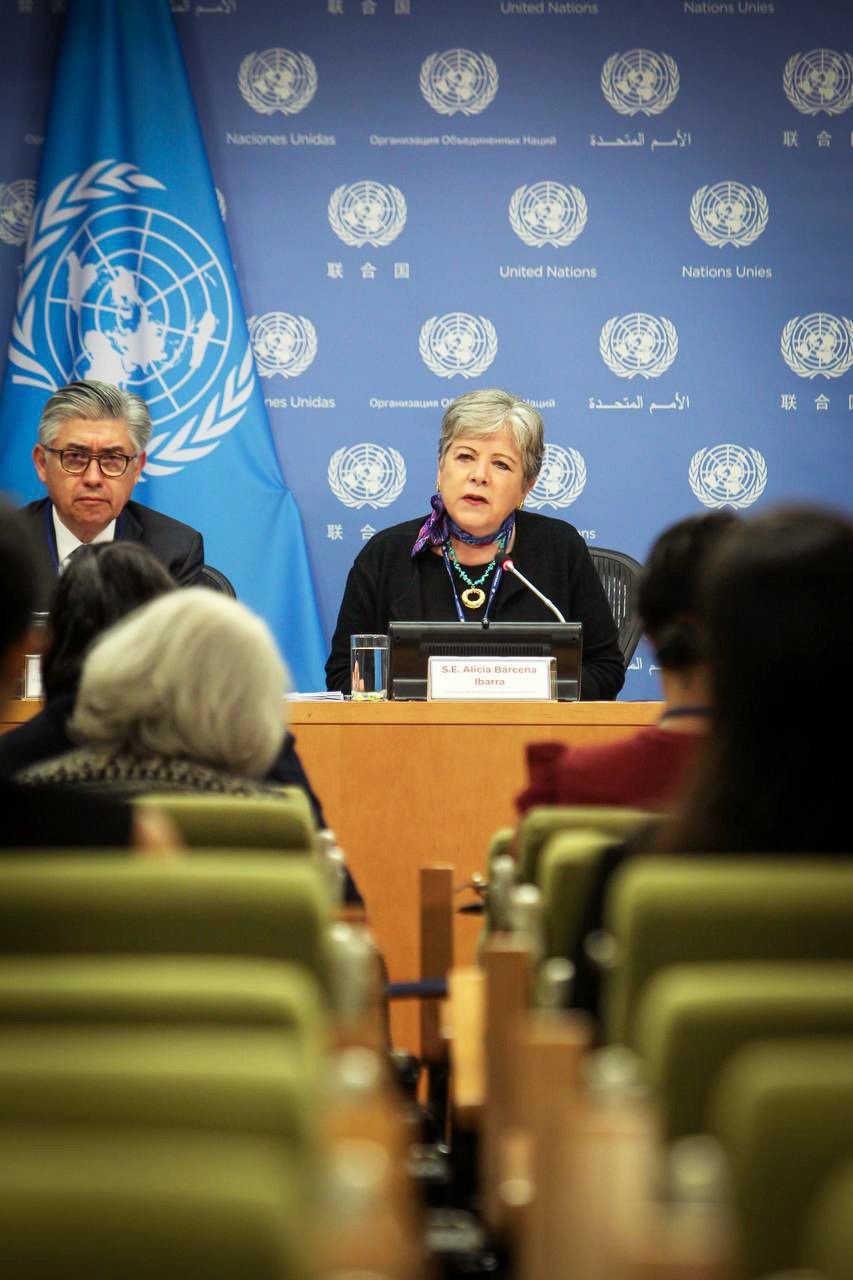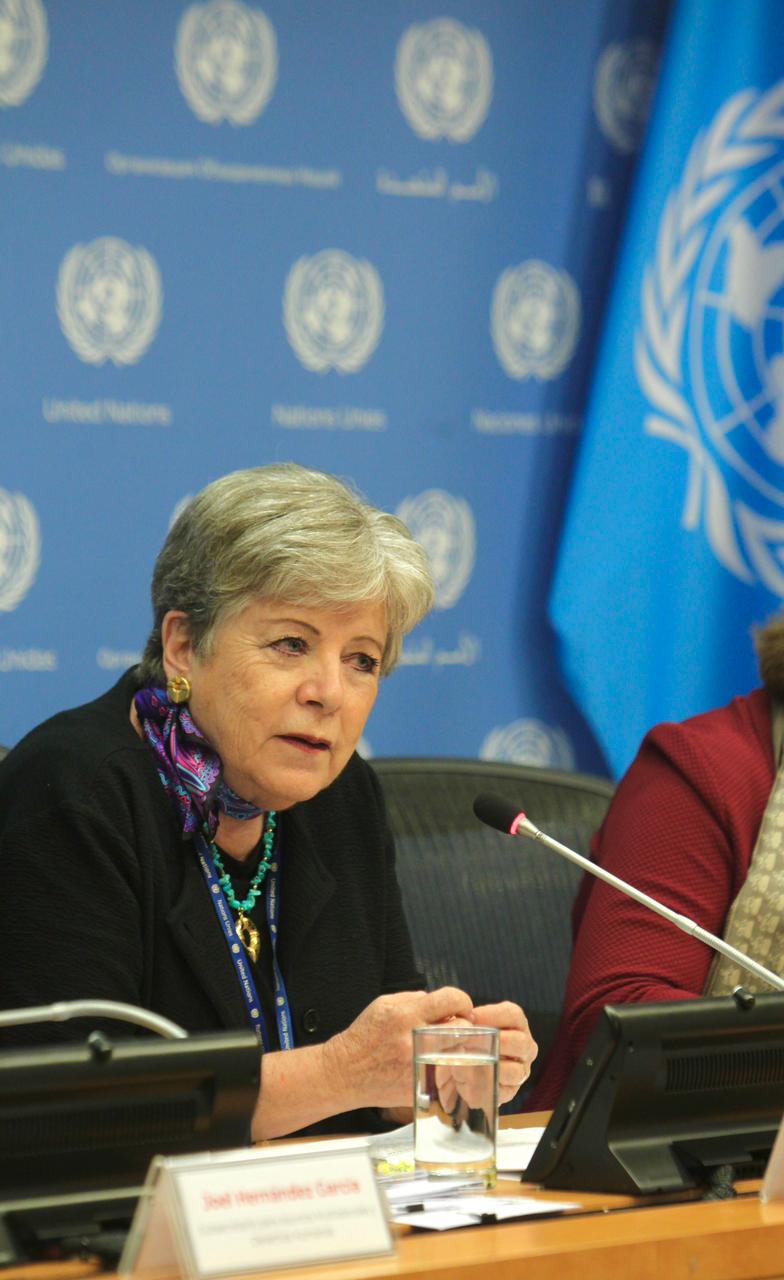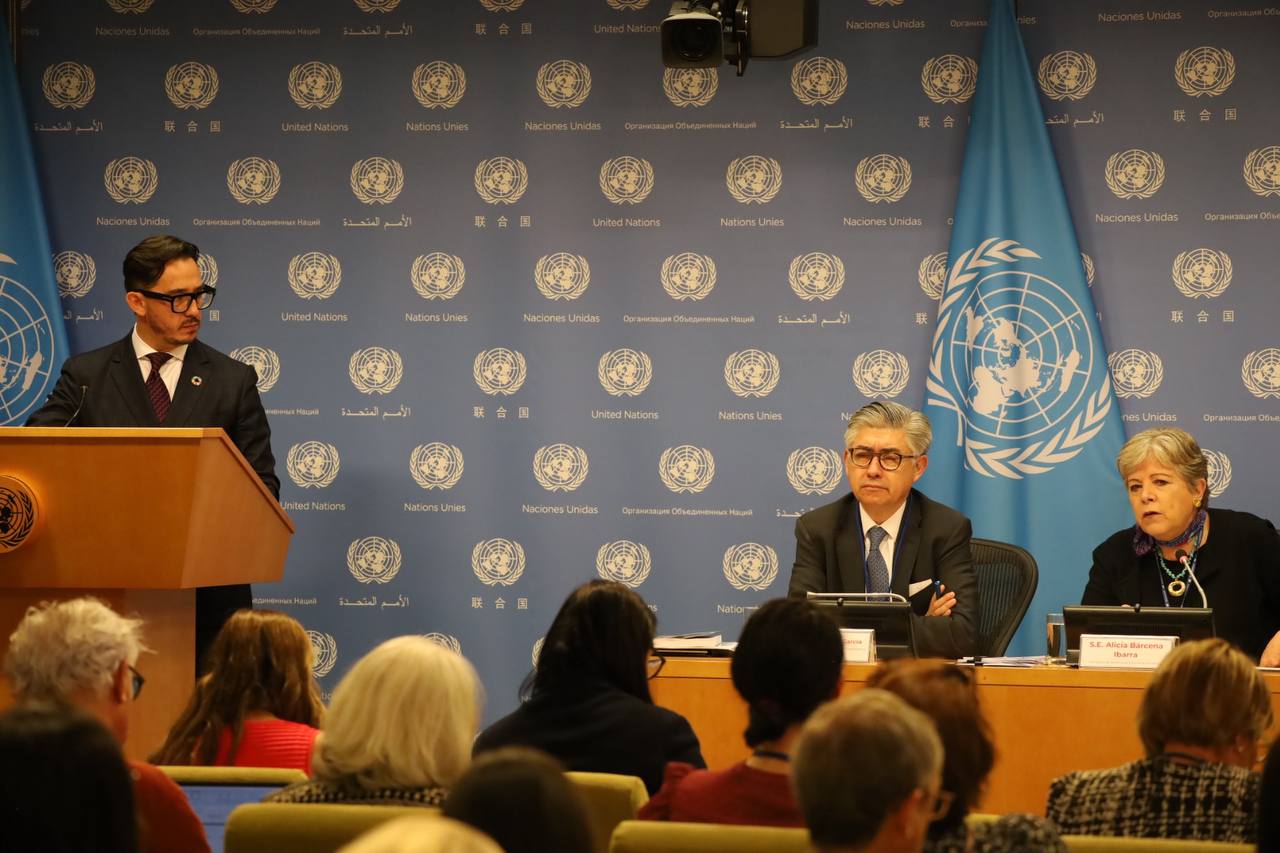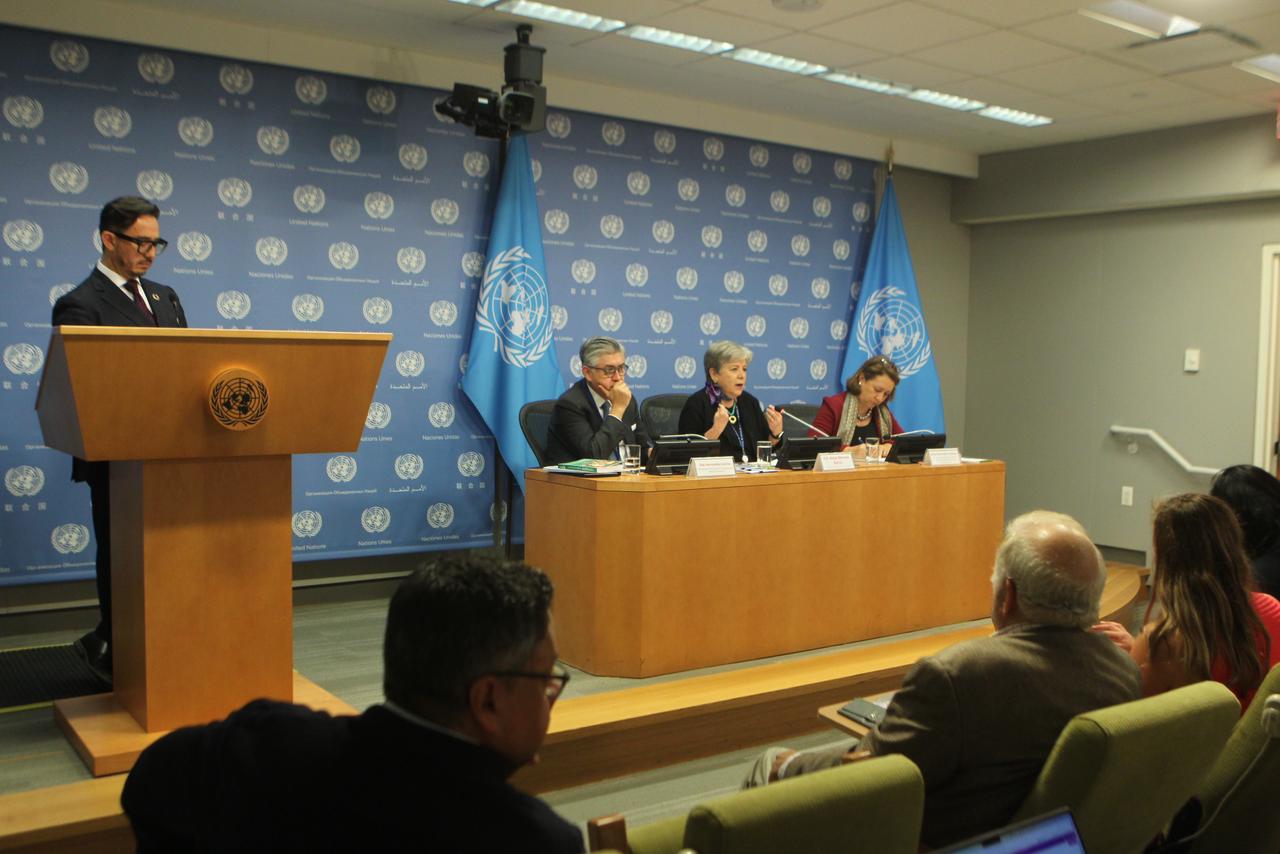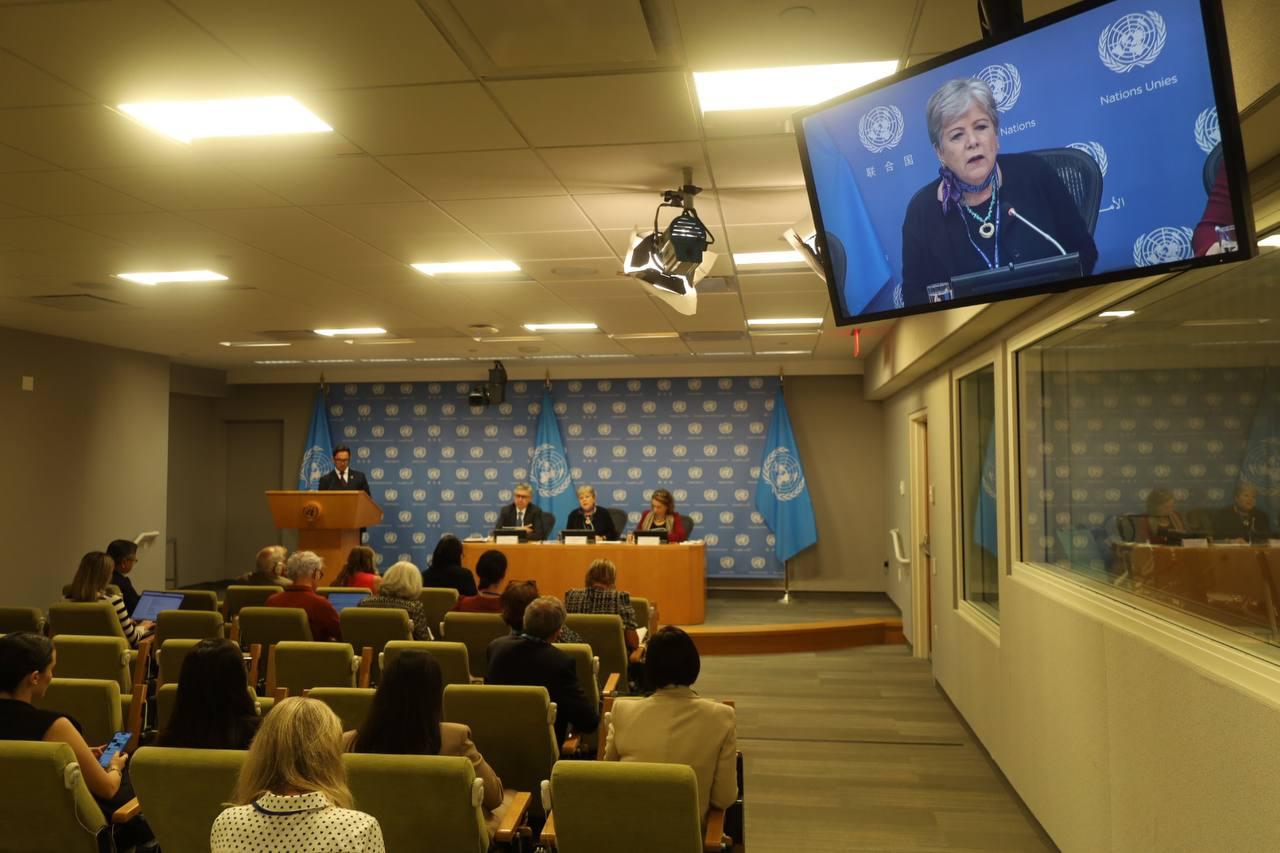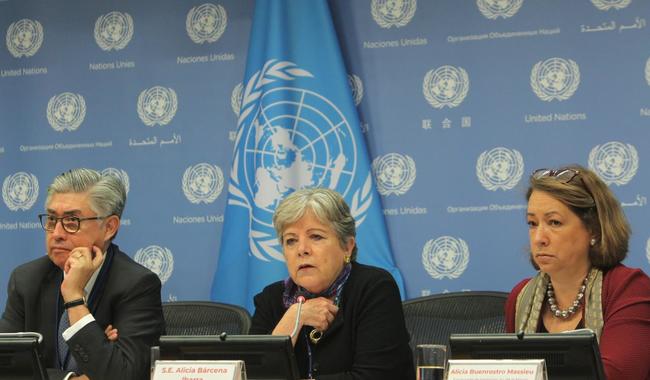At the UN, during the High-Level Week of the 78th session of the UN General Assembly, Foreign Secretary Bárcena said that Mexico has shown that it plays a key role in the world’s multilateral relations. Mexico is promoting a new paradigm of cooperation, with the aim of improving people’s welfare and development, and calling for urgent reform of the international financial architecture.
"We want to play a very active role at COP28 and at the TPNW conference […] I think it is very important for us to strengthen multilateralism. I must say that there is some concern that the heads of state of some countries are not here, especially some of the permanent members of the Security Council. I think we cannot allow multilateralism to fail. We need multilateralism; that's why we have been very active here this week,” she said.
At the press conference she gave at the UN in New York City, the Mexican Foreign Secretary discussed her agenda for this past week, gave an account of Mexico's progress in fulfilling the 2030 Agenda, and discussed the global challenges and their impact on the future.
She said that, thanks to its investments in infrastructure, social programs and development policies, such as the increase in the minimum wage, Mexico has lifted 5 million people out of poverty, which, together with other actions, has contributed to Mexico’s 69% fulfillment of the Sustainable Development Goals, according to a United Nations report.
"The government of Andrés Manuel López Obrador has invested around 1.6 billion dollars in the Sembrando Vida (Sowing Life) program, and another 1.2 billion dollars in the Jóvenes Construyendo el Futuro (Youths Building the Future) program. So, the result over these last five years is that 5 million people have been lifted out of poverty. This is a very important number, [achieved] in spite of the pandemic, where everyone had a big setback," she said.
Foreign Secretary Bárcena told the international media that she represented MIKTA, a group formed by Mexico, Indonesia, Korea, Turkey and Australia, at the SDG Summit, where she acknowledged the global delay in the 2030 Agenda due to the lack of financing.
She mentioned her meeting with the director of the International Atomic Energy Agency, Rafael Rossi, to discuss nuclear risks and reaffirm Mexico's position on the conflict between Ukraine and Russia, and the need to reach a peaceful solution.
Regarding the Global Coalition to Address Synthetic Drug Threats, created by the United States, Foreign Secretary Alicia Bárcena said that Mexico has seized 25 percent of the fentanyl circulating in the world, thanks to its efforts to control the entry of fentanyl precursors into Mexican ports.
She also called for controlling illegal arms trafficking, since 200,000 illegal guns enter Mexico over its border.
She reported on Mexico’s participation in Global Gateway, a European Union initiative to identify investment opportunities, which contributes to fulfilling the 2030 Agenda.
The Foreign Secretary discussed her bilateral meetings and meetings with multilateral organizations, highlighting Mexico’s commitment to strengthen its feminist foreign policy.
Regarding the Climate Adaptation and Natural Disaster Response Fund, a Mexican initiative when it chaired CELAC, the Foreign Secretary said that it is a seed fund that already has some four million dollars of contributions from countries such as Argentina, Mexico, Saint Vincent and the Grenadines, and the Dominican Republic. The CAF, World Bank and Green Funds are participating as well.
In environmental matters, she called for modifying the Paris Agreement to permit greater access to technology and renewable energies in developing countries, and she insisted on the need for financing from the developed countries to achieve this.
The Foreign Secretary mentioned the problem of migration on Mexico's southern and northern borders, saying that the vision promoted by President Andrés Manuel López Obrador is to analyze and work on the structural causes of migration.
"We are trying to have a policy that is very focused on human rights and the humanitarian protection of migrants. It isn’t easy, large numbers of migrants are entering, of very specific nationalities," she said.
Lastly, Secretary Bárcena mentioned the signing of the Treaty of the High Seas to protect marine biodiversity and the oceans, and the High-Level Dialogue on Financing for Development and the urgency of reforming the international financial system to support middle-income countries.
Among other meetings in which Secretary Alicia Bárcena Ibarra participated were those related to universal health coverage and the preparatory ministerial meeting of the Summit of the Future, in which she mentioned the challenges of the growing digital divide and inequality. She also spoke of the need to reform the United Nations.
